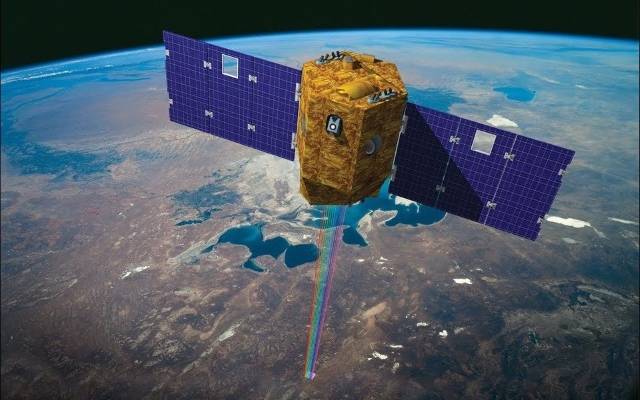Israel celebrated its first environmental research satellite, developed with France, which serves as an important climate-change tracking resource.
Israel and France celebrated their joint collaboration in space to promote key UN environmental development goals during a special event at UN headquarters in New York last week. The event, titled “Satellite Technology for Sustainable Development,” highlighted the contributions of the Venus satellite to climate and environmental research.
The event took place as a part of Israeli efforts to advance an Israeli resolution on the development of agricultural technologies, which will be presented to the General Assembly later this month.
The Venus satellite is one of many significant contributions to global development that have resulted from Israeli-French cooperation.
Venus, which stands for “Vegetation and Environment Monitoring on a New Micro Satellite,” is a flagship satellite project between the Israel Space Agency (ISA) and the French government’s space agency, Centre National d’Etudes Spatiales.
Venus, Israel’s first environmental research satellite, is a micro satellite that was orbited into space by a Vega launcher from the Guiana Space Centre (CSG) in August.
The satellite monitors the earth’s climate and agricultural landscape from space, using a multi-spectral camera to capture important details that are invisible to the human eye. Venus’s camera simultaneously captures 12 images from the same location and then processes these images to create one very precise color photograph.
The satellite monitors 100 of the earth’s main and natural crop systems, which will be observed every two days for the next two and a half years.
By analyzing and comparing images captured by Venus, researchers can assess the state of soil, understand how vegetation in a specific area is developing, and detect the spread of disease or contamination in a given field.
Venus’s advanced camera and unprecedented precision enables the satellite to collect revolutionary new levels of information on agriculture, biodiversity, water, and vegetation, and to identify trends to prevent climate change, pollution, and hunger.
Venus’ Contribution to Climate and Environmental Research
Last week’s event, which was attended by diplomats from all over the world and featured experts from the Israeli and French Space agencies, highlighted Venus’s potential for agricultural development.
Images captured by Venus were on display at the event, including a special exhibition that included satellite images of natural areas in different countries.
Israeli and French scientists discussed satellite activity and the contribution that Venus has made to climate and environmental research and to meeting key UN development goals. Google and the United Nations Food and Agriculture Organization (UNFAO) participated in the event and presented a joint project, which aims to expand the accessibility of land mapping and to identify climate change from the air.
Israel’s ambassador to the United Nations Danny Danon emphasized the role of Israeli technologies in tackling serious environmental challenges around the globe.
“We are proud to present the best of Israeli technologies and its contribution to the world and to advance these important issues. Israel is one of the leading countries in the field of technology worldwide and we are happy to share our knowledge with other countries and international bodies,” Danon stated.
Israel, which has vast experience in both space aviation and agriculture will continue to use its knowledge and research to promote sustainable environmental practices around the world and to create a healthier and more prosperous future for all,” Israel’s foreign ministry stated.
By: United with Israel Staff
